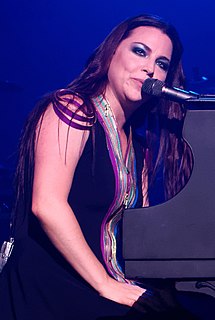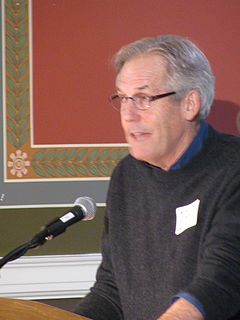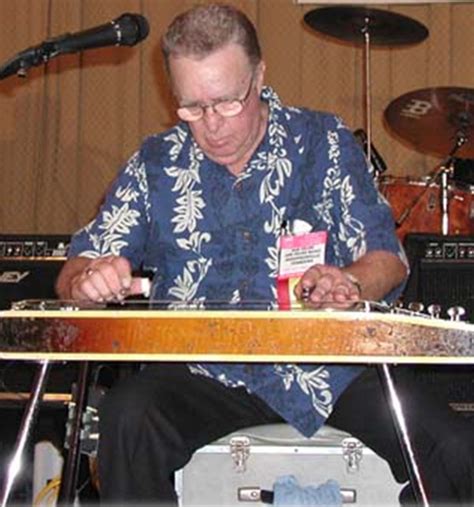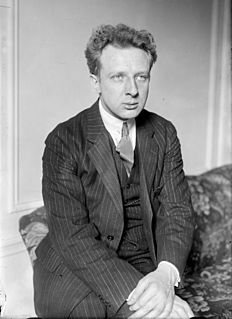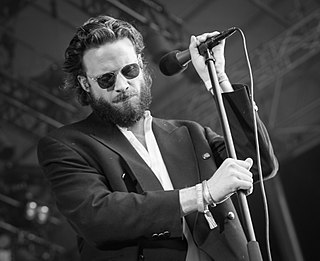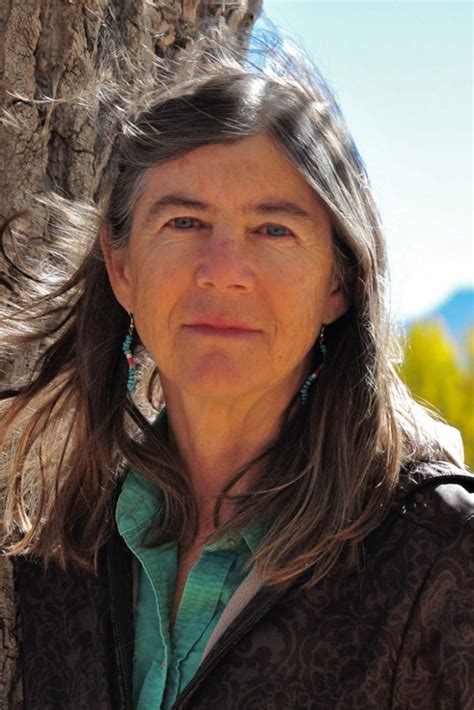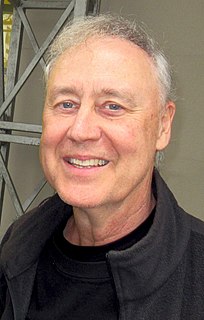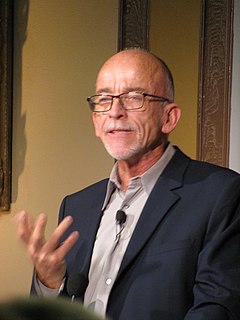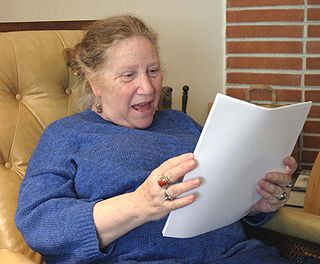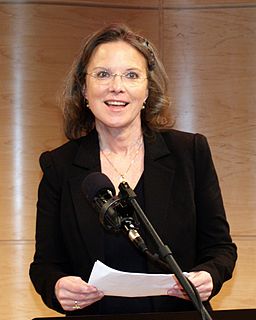Top 390 Lyric Quotes & Sayings - Page 7
Explore popular Lyric quotes.
Last updated on November 12, 2024.
The lyric abstrusities of Auden ring mystically down the circular canals of my ear and it begins to look like snow. The good gray conservative obliterating snow. Smoothing (in one white lacy euphemism after another) out all the black bleak angular unangelic nauseous ugliness of the blasted sterile world: dry buds, shrunken stone houses, dead vertical moving people all all all go under the great white beguiling wave. And come out transformed. Lose yourself in a numb dumb snow-daubed lattice of crystal and come out pure with the white virginal veneer you never had.
Music is very, very important in my movies. In some ways the most important stage, whether it ends up being in the movie or not, is just when I come up with the idea itself before I have actually sat down and started writing. I go into my record room... I have a big vinyl collection and I have a room kind of set up like a used record store and I just dive into my music, whether it be rock music, or lyric music, or my soundtrack collection. What I'm looking for is the spirit of the movie, the beat that the movie will play with.
All my big heroes are literary, writers. I'd love to meet Jimmy Hendrix or John Coltrane, but I'd much rather meet Thomas Wolfe, or F. Scott Fitzgerald. Words and books have always meant a lot to me. That someone can take words and string them together to where they will move me is just a hell of a thing. It's amazing to me; more amazing to me than music or painting. It's always been the written word or the spoken word, like a great lecture or a great lyric, or a great poem. To me it's just amazing. And I always aspire toward capturing that, or my version of it.
Paul Otremba’s remarkable first book, The Currency, is an intriguing foray into lyric epistemology that tries to come to ter ms with the implacable, paradox-ridden nature of knowledge and experience. These are deeply felt, deeply meditated poems guided by a sensibility highly attenuated to the physical world. In their openness to friendship and love and in their fearless directness, they remind me of the work of Larry Levis and Jon Anderson. Like Levis and Anderson, Otremba promises to be an influential and important voice for his generation.
We'd like to just write nothing but lyric poetry. The trouble is, the individual is going along intent on his own personal gratifications and love affairs and financial affairs and everything else. But loping alongside him is this fascist lout who keeps trying to take over. And if you keep ignoring him, he gets bigger and bigger, so every once in a while the free individual has to turn away from his private pursuits and give this fascist lout a few clouts, and beat him down to size.
Everything in New Orleans is a good idea. Bijou temple-type cottages and lyric cathedrals side by side. Houses and mansions, structures of wild grace. Italianate, Gothic, Romanesque, Greek Revival standing in a long line in the rain. Roman Catholic art. Sweeping front porches, turrets, cast-iron balconies, colonnades- 30-foot columns, gloriously beautiful- double pitched roofs, all the architecture of the whole wide world and it doesn't move.
I just said, you know, this is a great track but this lyric, I don't believe it. It sounds like I'm trying to say something, instead of it naturally coming out of me, like I was saying something that I already knew. Anyway, I can't remember what it was. And either I threw it all out or I threw 90 percent of it out, and kept a line or two. That's happened a couple of times to me. Not too often, but a couple of times. Very aggravating when it does happen.
I think, then, there's the sort of, like, political dimension to lyrics. One of the problems that I've had with my output as a lyric writer is that I look back at it and there's some turn-of-phrases and some images and some kind of montage-y kinds of things I'm really proud of. But it kind of bums me out that people have told me again and again that they don't really understand what I'm trying to say.
I touched my lips to hers again, and this time, it was a very different sort of kiss. It was six years’ worth of kissing, her lips coming to life under mine, tasting of orange and of desire. Her fingers ran through my sideburns and into my hair before linking around my neck, alive and cool on my warm skin. I was wild and tame and pulled into shreds and crushed into being all at once. For once in my human life, my mind didn’t wander to compose a song lyric or store the moment for later reflection. For once in my life, I was here and nowhere else. -Sam
My self . . . is a dramatic ensemble. Here a prophetic ancestor makes his appearance. Here a brutal hero shouts. Here an alcoholic bon vivant argues with a learned professor. Here a lyric muse, chronically love-struck, raises her eyes to heaven. Her papa steps forward, uttering pedantic protests. Here the indulgent uncle intercedes. Here the aunt babbles gossip. Here the maid giggles lasciviously. And I look upon it all with amazement, the sharpened pen in my left hand.
My favorite song he ever wrote was 'Cold Cold Heart.' If you think about it, the lyric to 'Cold Cold Heart,' see how many two syllable words are in that song. Very, very few. ... Verses and the choruses have very few two syllable words. 'I tried so hard my dear to show that you're my everything.' One three-syllable word.
The thing that bothers me is that it seems like all the sensitive stuff I write just goes unnoticed . . . the media doesn't get who I am at all. Or maybe they just can't accept it. It doesn't fit into those negative stories they like to write. I'm the kind of guy who is moved by a song like Don McLean's "Vincent," that one about Van Gogh. The lyric on that song is so touching. That's how I want to make my songs feel. Take "Dear Mama" - I aimed that one straight for my homies' heartstrings.
From the simplest lyric to the most complex novel and densest drama, literature is asking us to pay attention. Pay attention to the frog. Pay attention to the west wind. Pay attention to the boy on the raft, the lady in the tower, the old man on the train. In sum, pay attention to the world and all that dwells therein and thereby learn at last to pay attention to yourself and all that dwells therein.
It's hard to put into words the impact of the perfect lyric, melody or contagious beat that moves you in an unexpected way. Authors, composers and artists have tried - and here we've rounded up our favorite quotes that help to begin forming structure around such an unspoken universal force. Which are most meaningful to you? If you had to sum up the power of music and sound in one sentence, what would you say?"A painter paints pictures on canvas. But musicians paint their pictures on silence."
You know, there's an economy in lyric-writing that doesn't afford you, or at least me - I usually start off with nine or 10 verses and then boil it down to two or three that are half the length of the original verses. I think for me it's about what you leave out [rather] than what you put in. I'm not sure that the songs help me figure anything out so much as they're a distillation of the original question.
My poems are certainly in the lyric tradition, but perhaps a reader can tell me more precisely who I am as a poet. How can I be so old and not know? I have always been deeply grateful for the urge to write, the desire to create, that's certain. Writing has always been the way I make sense of life. Perhaps my poems define me, rather than the other way around. They do constantly surprise me.
The author's conviction on this day of New Year is that music begins to atrophy when it departs too far from the dance; that poetry begins to atrophy when it gets too far from music; but this must not be taken as implying that all good music is dance music or all poetry lyric. Bach and Mozart are never too far from physical movement.
Songwriters I've always been drawn to are people who deal with something of depth in the lyric writing. ...I've always been influenced by the folk song, the storytelling tradition in folk music. And so for years I wrote mostly story songs. I still do that, but as I've gone on, it's gotten a little more personal. I used to write mostly in the third person. I write a little more in the first person now.
I always have a feeling you should move the playing field and the minute you know what you're doing, you're wrong. Therefore, I wanted us not to try to follow Spamalot immediately, but to do something different. This is perfect because it uses all the same skills, like story telling and lyric writing and music writing, but it's presenting it in a different form. And of course it gives me and John a nice chance to perform and show off which is also fun.
Anna Journey, in her new book of poems, Vulgar Remedies, creates an alchemical self whose shimmering limbic / alembic lyrics distill the mysterious terrors of childhood, the dangerous passions of adults, into her own honey-dusk 'voodun': protective, purified to gold. Poetry is always a time machine: here we are invisible travelers to a bewitched past, a beautifully occluded future. These poems are erotic, vertiginous, revelatory, their dazzling lyric force reflecting profound hermetic life.
Poetry is like a portrait of a moment or person, and the poem is almost like looking at a photograph; it slaps you in the face and kisses you at the same time. Nothing else does that, with that brevity. Songs try to do it, but that's three minutes. A poem, you read it and it kind of changes your life and you don't know how it happened and you can never forget it. It's like the best song lyric, the best line from a film-everything in the world that's short and great put together.
Frequently, I go straight into the studio and see what's around. I might hire a couple of instruments that I've never used - maybe a particular type of electronic organ or an echo unit. Then I just dabble with sounds until something starts to happen that suggests a texture. The texture suggests some kind of mood, and the mood suggests some kind of lyric. That's like working in reverse, often quite the other way around, from sound to song. Although often they stop before they get to the song stage.
'Everything beautiful occurs when the body / is suspended,' Helena Mesa quotes a performance artist who hangs his own pierced body in the air. Mesa's poems are artfully suspended between lyric and narrative, between humans and animals, between Latin America and the U.S., between desire and the difficulty of its fulfillment. Horse Dance Underwater is an inventive, musical, and powerful debut.
There is also a third kind of madness, which is possession by the Muses, enters into a delicate and virgin soul, and there inspiring frenzy, awakens lyric... But he, who, not being inspired and having no touch of madness in his soul, comes to the door and thinks he will get into the temple by the help of art - he, I say, and his poetry are not admitted; the sane man is nowhere at all when he enters into rivalry with the madman.
With ferocity and extraordinary craft, Lizzie Harris has made a book of poems that resonates far beyond the personal stories it tells. Stop Wanting reveals, in every lyric, its author's profound metaphorical gifts. In its ironies and intensities, it brings to mind a writer like the young Sylvia Plath, though what is startling about Harris' s work is the way it combines those gifts with a muted, deft self-awareness. Most of all, these are wonderfully shaped, powerful, and surprising poems-a startling debut.
We spent a long time learning the craft of songwriting, Roger Glover and I, for a few years before we joined Deep Purple. You learn about the percussive value of words, and you learn about rhyme and meter. You learn that you can't transform a poem into a song lyric, mostly because the spoken shape of words is different than the sung shape of words. You wouldn't use the vowel 'U' or the vowel sound 'ooo' for a high note for example, its very difficult.
Maketa Groves has a strong, bright lyric gift. Her poems come out of music and are full of music. They bring us the sounds of the streets and the sounds of nature, and make us see once again that they are parts of the same song. She celebrates American lives as they are lived today: the mother scrubbing her kitchen floor at midnight, the drag-queens in the Tenderloin, the homeless woman knitting in the courtyard. This is poetry that relentlessly shows us the beauty in the world, with all its struggles and complexity, and demands that we go out to meet it with open hearts.
Blood Dazzler is Patricia Smith's impassioned lyric chronicle of a beloved city in peril, a city whose people were left to die before us all, a people who were the heart of our country and lifeblood of our culture. After rising water, winds and abandonment, after our failure and neglect, comes this symphony of utterance from the ruins: many-voiced, poignant, sorrowful and fierce. This is poetry taking the full measure of its task.

